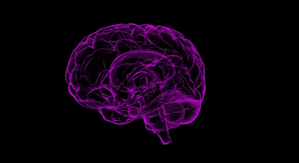Immune system changes are linked to schizophrenia: research
New Delhi, January 17 (IANS). The study, led by researchers in Singapore, suggests that immune system changes are linked to schizophrenia, and potentially to treatment resistance.
The causes behind schizophrenia, a psychotic disorder that affects approximately 24 million people worldwide and 1 in 116 people in Singapore, are not yet known.
A study published in the journal 'Brain, Behavior and Immunity' suggests that immune system dysfunction may be behind the development of mental disorders. Many researches are already being done in this direction.
Furthermore, not all patients with schizophrenia respond to standard antipsychotic medications. Approximately one in three people worldwide suffering from schizophrenia does not respond to treatment.
This means that despite treatment they do not get relief from symptoms such as hallucinations and delusions.
Using changes in immune cell populations, the team from Singapore's National Healthcareer Group and the Agency for Science, Technology and Research predicted potential treatment resistance, helping to start the most appropriate treatment as early as possible.
“Our goal was to identify immune cell changes that could potentially be used to predict treatment resistance, allowing earlier and more targeted treatment,” said lead author Dr. Li Yanhui, NHG Psychiatry Resident at NHG. Such as starting clozapine treatment as soon as possible for better clinical outcomes. Clozapine is currently the only psychiatric medication indicated for the treatment of treatment-resistant schizophrenia.”
For the study the team analyzed blood samples from 196 healthy participants and individuals with schizophrenia with varying degrees of treatment resistance.
They identified and compared 66 immune cell populations in the blood of 147 people with schizophrenia and 49 healthy individuals to explore which immune cell populations are associated with the disorder and treatment resistance.
The results showed significant differences in certain immune cells between healthy individuals and those with schizophrenia.
These findings raise hopes for early identification of treatment-resistant patients. This will also help physicians select more effective treatment strategies to achieve better outcomes.
–IANS
MKS/AS


Comments are closed.